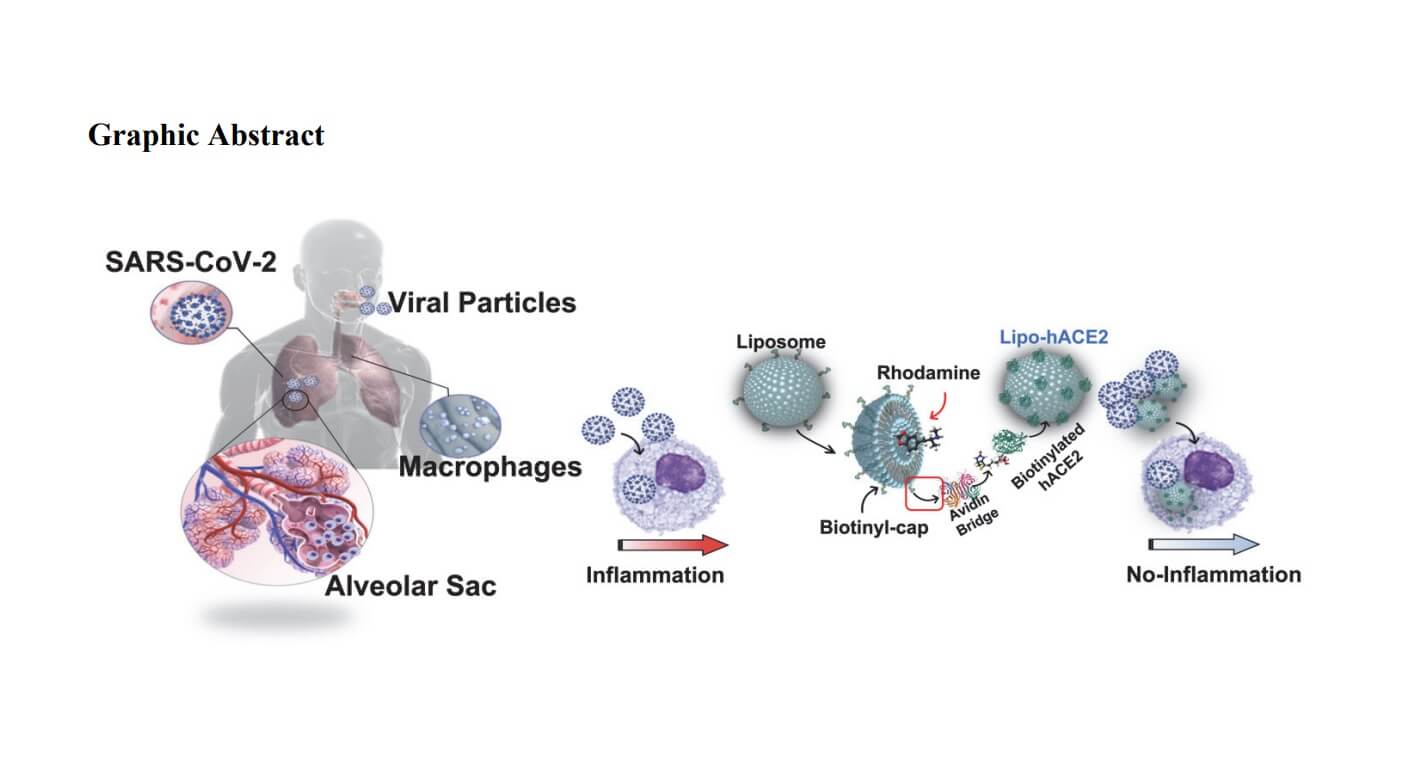A team of researchers succeeded in developing innovative nanoparticles that could be used as "molecular traps" targeting the corona virus while binding to the virus and thus preventing it from acting
![Image depicting the novel lipid nanoparticles targeting the coronavirus [Courtesy: Sandro Satta, UCLA]](https://www.hayadan.org.il/images/content3/2022/02/Nanoparticles-and-SARS-CoV-2_0.jpg)
[Translation by Dr. Moshe Nachmani]
A research team led by scientists from Riverside Public University (California) and the University of California at Los Angeles (UCLA) succeeded in developing innovative nanoparticles that could be used as "molecular traps" targeting the coronavirus. These traps bind to the virus and thus prevent it from attacking macrophages - those white blood cells that surround and destroy microorganisms that harm the body. "These nanoparticles could help preserve the regular activity of white blood cells in order to fight the viral infection," said Changcheng Zhou, professor of biomedical sciences at the University of California.
The lead researcher explains that macrophages function as immune cells that are on the front line in the fight against the corona virus, by identifying and ingesting harmful viruses. In addition, the cells also produce cytokines, which are an important and essential part of the immune system, but these may get out of control. The cytokine storm following the exposure of the body to the virus - that is, the flooding of the immune system of the blood circulation with anti-inflammatory proteins called cytokines, may cause the development of an infection and even destroy tissues and damage various organs in the body. The lead researcher claims that macrophages formed as a result of inflammation are able to penetrate into various tissues and cause negative side effects associated with the corona virus, such as inflammation of the heart muscle (myocarditis).
"Our findings could, theoretically, be used to treat diseases related to the corona virus, including heart disease," said the lead researcher. "In addition to pneumonia or lung damage, about fifteen percent of corona patients with underlying diseases may develop diseases such as severe cardiac arrhythmia or myocarditis, and macrophages play an important role in this process."
A mechanism in the immune system that is not well known
Mechanisms related to the dysfunction of macrophages following exposure to the corona virus are not well known to scientists. According to the researcher, this result was caused because many of the immune cells, including macrophages, express low levels of the receptors for the coronavirus (ACE2, hACE2). "Previous studies in this field focused mainly on mechanisms related to the hACE2 receptor," explains the lead researcher. "Our findings, on the other hand, imply that the virus itself is able to "hijack" the macrophages and induce an inflammatory response without the presence of the hACE2 receptor."
The researchers examined the mechanism of neutralizing the virus with the help of liposome-type particles - molecules that can be used to carry drugs or other important substances into the tissues - as an innovative healing strategy for the treatment of diseases related to the corona virus. The research team used nanoparticles to engineer a "hACE2-liposome" for use as bait.

"The corona virus binds to the hACE2 receptor located on the surface of the liposomes instead of the immune cells, thus preventing them from causing macrophage-induced inflammation," said the lead researcher. "It is possible that our innovative carrier will be able to prevent the replication of the virus itself and thus reduce the inflammatory response."
The experiments were carried out with the help of macrophages in humans and mice. In rodent tissue, the researchers found that the molecular traps inhibit the infiltration of macrophages following exposure to the spike protein of the coronavirus in the lungs and heart, while suppressing inflammation in the lungs and heart. The research team also found that the spike protein induces inflammation by activating a signaling pathway called NF-κB.
"The nanoparticles we developed were found to be very effective against virus-induced inflammation," explained the lead researcher. "Omission of IκB kinase, an important regulator of NF-κB signaling, can abolish the spike protein-induced inflammatory response. The researchers found that this regulatory substance, therefore, is essential for macrophage-inducing viral inflammation. This material could be important in the fight against the corona virus."
More of the topic in Hayadan:

One response
Macrophages and not /macrophages/
This is a word of Greek origin and there is no C in it, but C. Only in English comes C.
in Hebrew macrophage and not macrophage